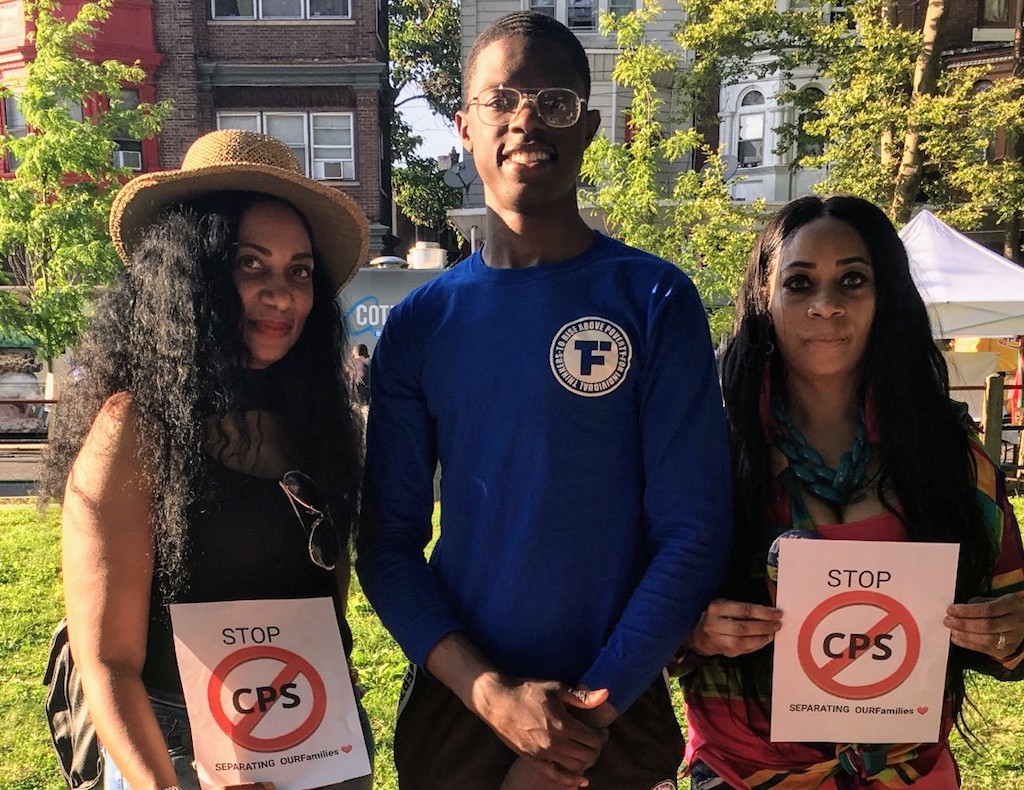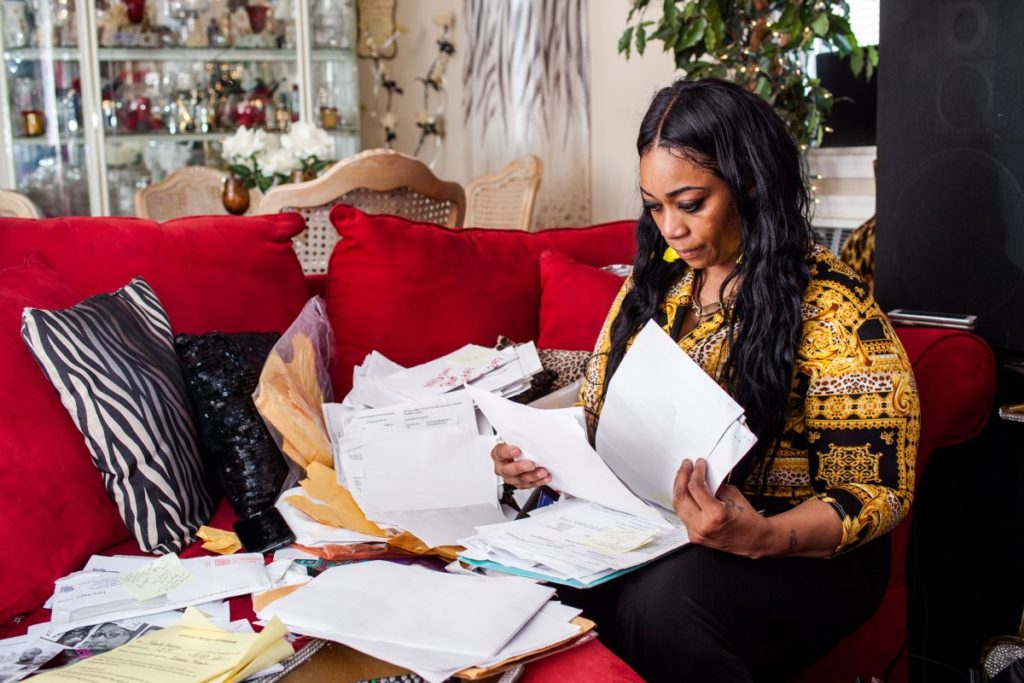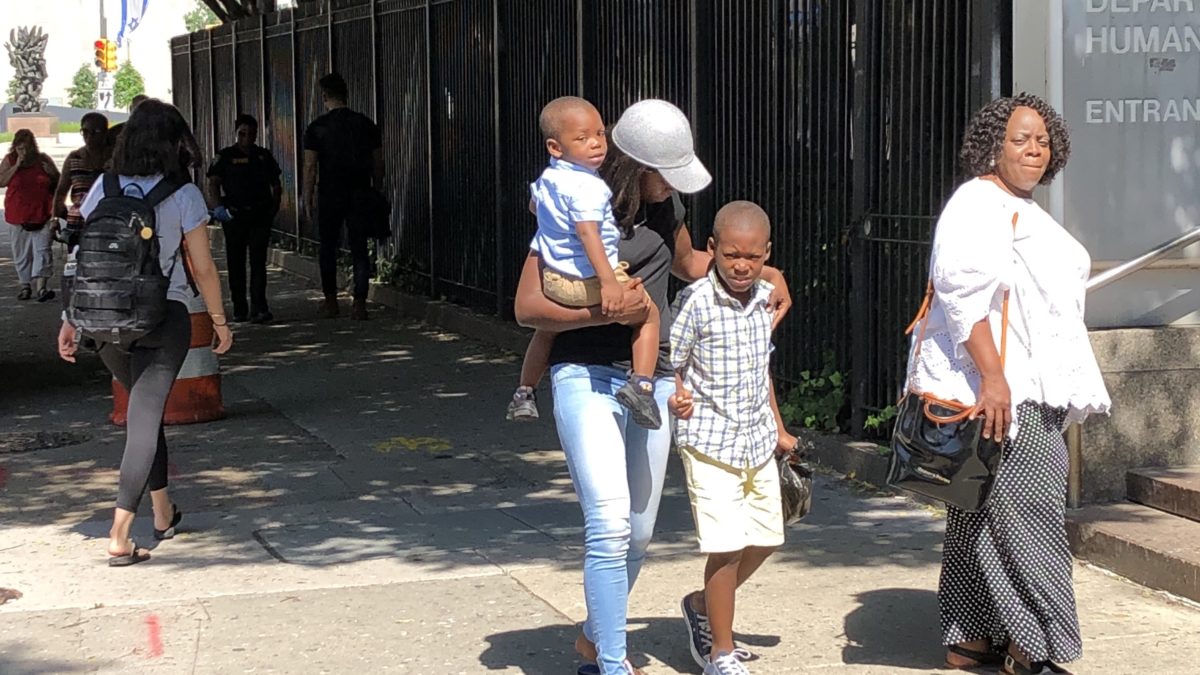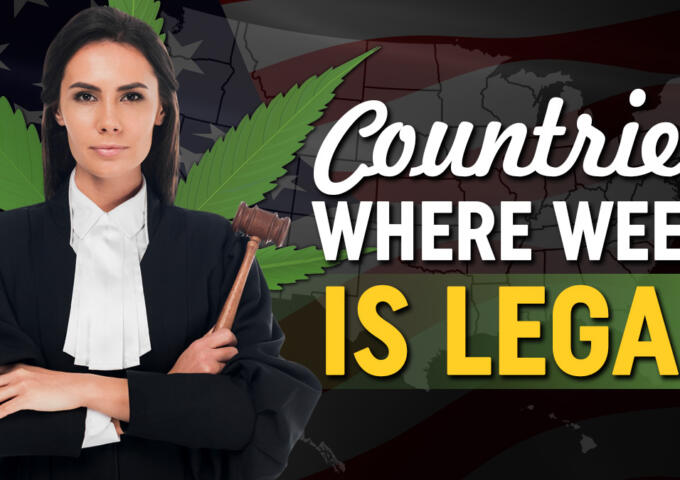When her fifth child was born, Yolanda Walker-Jackson had marijuana in her system, which she was smoking to help with extreme nausea she experienced during her last pregnancy.
It was the only thing that helped her eat, Walker-Jackson said. She stopped doing drugs once her child was born, but it was too late since DHS had already opened a case against her.
She attended the parenting and drug and alcohol classes that her CUA worker outlined for her to do, as well as finding work and housing. She had been living with family. “It was hard to do all of this in three months and find a daycare,” Walker-Jackson said.
Plus, her youngest daughter was born with sickle cell, and Walker-Jackson had to take her to many appointments and try to keep her healthy during all of this.
Walker-Jackson’s two older sons stay with their father in Delaware, and Walker-Jackson and her youngest three children were living with different relatives and then eventually with her aunt, who got mad at Walker-Jackson one day and kicked her out. She had nowhere else to go except to live with her mother in Syracuse, New York. She even informed her CUA worker that she would be taking her children there, Walker-Jackson said.
On Dec. 17, police came for Walker-Jackson’s three young children, at the time aged 7, 1, and 3 months.
“My oldest was at school, and my two youngest were in my arms,” Walker-Jackson said, adding that the police did not have a court order but intimidated her into releasing her children. “Honestly, that day all I did was walk back and forth up the block, but there was nothing I could do.”
Walker-Jackson returned to Philadelphia to try to get her children back – and has been battling the system ever since – despite the fact that CUA workers have told her that her kids would be adopted easily because they are young, Walker-Jackson said.
“The judge said she’s teaching me a lesson. What lesson are you teaching me? You’re not hurting me. You’re hurting my children.”
Walker-Jackson has reams of papers documenting her communications with CUA workers and family court.
Despite the fact that Walker-Jackson wants her kids with their uncle, who is willing to take them, the three children, now 8, 2, and just over 1 year have been placed in foster homes. Walker-Jackson gets supervised visits with them at family court, to which she always brings clothes, food, and toys for them. She now has her own apartment and is working in the food preparation industry.
But her 8-year-old son is already on his third foster home, and she fears her 2-year-old may be suffering abuse in foster care, having spotted cut marks on his forehead and seeing his foster mother dangle him by his arm, Walker-Jackson said.

Her next court hearing is in November, but she has to wait until December for a parenting evaluation. Walker-Jackson is worried that not having the evaluation in time for the hearing will affect her ability to get her children back. She feels she has worked very hard to meet all the criteria DHS and CUA workers set out for her.
“Now my children are traumatized for the rest of their lives, and that’s not OK,” Walker-Jackson said. “My kids feel like they’re being neglected, or they’re not wanted, and it’s not true.”
To try to bring down the numbers of children placed with DHS, the department contracted with two providers to operate Family Empowerment Centers, the Village in the Southwest section of Philadelphia and Congreso de Latinos Unidos in North Philadelphia, to connect families with community-based supports to meet their ongoing needs, such as parenting groups, housing supports, education and employment assistance, and access to funding for items such as cribs, clothing, food. Other services may include intensive case management, substance abuse services, and other supports.
The idea is to help people at risk of being involved with DHS, or those where there has been an allegation of abuse or neglect, but DHS has found that there is no unmitigated safety threats or present danger for the children. The Empowerment Centers can also be a place for people who have had negative interactions with DHS to get help. Last year, 4,872 families received case management to help stabilize and connect to resources such as mental health and primary physical health care, DHS spokesperson Heather Keafer said.
“The Family Empowerment Centers are a community-based approach to reducing the number of children who enter DHS care,” DHS Commissioner Cynthia Figueroa said in a press release. “We’re excited to launch this new initiative that will provide greater support to families.”
DHS also works with national child welfare experts, Casey Family Programs, and has connected with Washington, New York, and Pittsburgh to learn about what strategies have been effective in their jurisdictions, Figueroa said.
Some examples of what the department has done to support families and prevent formal involvement with DHS include:
- Adding field screening units to safely divert families reported to the hotline from being accepted for investigation
- Last year, 1,113 families received short-term help for concrete needs like groceries and paying utility bills through a program called Rapid Service Response. DHS is requesting an increase from the state to serve more families.
- DHS funds quality Out of School Time programs, 175 last year. The programs help working families with after-school assistance and ensure children continue to learn and grow in a safe space.
- Parents are supported through “Parent Cafes,” parent-led spaces where caregivers connect to share parenting tips. Last year, 2,850 participants came to Parent Cafes.
- Last year, DHS started a pilot program called Rapid Rehousing for Reunification that provided subsidized housing to families whose only barrier to reunifying with their children was housing. DHS is requesting additional support from the state to serve more families.
- DHS also funds Community Legal Services to accept direct referrals from its hotline and providers to assist families who need help with issues such as landlord-tenant conflict and accessing benefits.
“I want to continue to “right-size” our work by continuing to reduce the number of families involved with the department through safe diversion as well as safe and timely reunification,” Figueroa said. “Through continued investments in prevention services, we hope to keep decreasing the number of children who come into care by ensuring that families have services that best fit their needs. Most families reunify within one year. No one solution applies to all families. And again, DHS does not make decisions in a vacuum. There must input from the city solicitor, the child advocate, and the final approval comes from a family court judge.

While all these steps are positive, however, many people feel that they fall short of addressing the high child removal rate in Philadelphia.
City Councilman at-large David Oh argues that DHS should institute a “transparent, uniform, simple process” to ensure that everybody is complying with state law.
“If you have a system where somebody would write down the circumstances, lay down the compliance with state law, state why they are filing with witnesses and evidence, then people would not be like, ‘Oh, if I don’t go do this, I could lose my job or be prosecuted,” Oh, an attorney, said. “They would have, ‘OK, listen, in due diligence, I looked at this. And the reason why I did investigate, or I didn’t or was because of this. If I’m wrong, at least I have articulated the process, so I’m no longer subject to losing my license.’
“Nobody is saying DHS workers are rotten, bad people,” Oh added. “What we’re saying is the state law requires these standards. Let’s comply with them. Let’s make sure people understand what reasonable suspicion is if they’re a mandated reporter, because when they open the door with filing a complaint against person with no good reason, now, DHS has the option to come knocking on your door in answer to an allegation that has no evidence, which could lead to other things. It seems to be the accepted practice in Philadelphia, that all of this is OK. … In this case, children are being harmed.
“My conscience won’t let me stop for the 5-year-old,” Oh said, referring to Yolanda Bryant’s granddaughter. “They’ve come to my doorstep. I cannot pretend I’m not knowledgeable.”
Yolanda Bryant said she isn’t giving up the fight, either.
“Our kids cannot speak for themselves,” she said. “When something happens to a child, and you keep that in, you are part of the problem.
“I have more than hope I believe that this will come to justice,” Bryant added. “That’s why I keep fighting.”
The Commissioner’s Action Response Office is available for questions, concerns or complaints about an open Philadelphia case. That number is 215-683-6000.
Read Parts I & II of “The Kids are Crying” three-part series on philadelphiaweekly.com.

This article is part of Broke in Philly, a collaborative reporting project among 23 news organizations, focused on Philadelphia’s push towards economic justice. Read more of our reporting at brokeinphilly.org.





